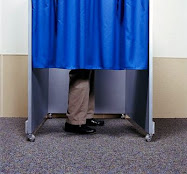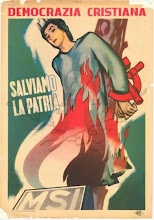County officials across California are worried that state leaders whose budget-balancing ballot measures were rejected in last week's special election will not reimburse local governments for the cost of the failed attempt, a bill that could reach $100 million.
The state usually pays the 58 counties for the costs of special elections, but not always. With California's dire budget situation growing bleaker by the day, local officials are not holding their breath.
"At this point, we anticipate it as a cost that we, once again, are going to have to absorb," said Susan Muranishi, administrator for Alameda County, which spent almost $3 million on the election.
A statewide association of county elections officials believes the final bill will probably be $68 million to $70 million, while the secretary of state said the cost could be $60 million to $100 million. County officials say they paid the costs out of their general fund, the main source of money for day-to-day operations.
San Francisco budgeted $3 million for the election, while San Mateo County officials anticipate that their final costs will be nearly $2 million. The bill in Contra Costa County is likely to be $3.2 million, officials there said.
"This is on the county's nickel, and hopefully there is reimbursement," said Steve Weir, clerk-recorder in Contra Costa County. Weir also is coordinating the effort among counties to submit election expenses to the state.
No state reimbursement for last Tuesday's election would compound local governments' looming fiscal problems, which include Gov. Arnold Schwarzenegger's plan to keep as much as $2 billion in property taxes from financially struggling local governments to help the state balance a growing budget gap exceeding $21 billion.
Administration officials said they would push for counties to be paid back. Reimbursement for election costs must be approved by the Legislature, which is considering drastic cuts to a host of programs and services.
State Senate President Pro Tem Darrell Steinberg, D-Sacramento, and Assembly Speaker Karen Bass, D-Baldwin Vista (Los Angeles County), said they will address the question of reimbursing counties for election costs, but not right away.
Steinberg said the payment will probably be part of a budget deal that the Legislature and Schwarzenegger are trying to reach for the coming fiscal year, which begins July 1.
California counties received $86 million for the February 2008 presidential primary under a bill the Legislature passed to authorize the election. There was no such requirement for last week's special election.
Local officials are bracing for the state to borrow money, delay payments for services and cut funding for some services altogether.
"We're at a point where we don't have a lot more ability to share the pain without significant changes to public services, which is a euphemism for stopping doing things," said Jean Hurst, lobbyist for the California State Association of Counties.
Hurst said counties are "exploring a lot of different options" on how they might push back against the state's efforts to borrow local money.
San Mateo County Board of Supervisors President Mark Church said leaders there are "bracing for the worst" and exploring how to push for major constitutional reform for the state.
San Francisco officials also are fed up.
"Instead of getting our fair share of funding for vital services like health care and public safety, we're going to have to make cuts - all because state government can't get its act together," said Nathan Ballard, spokesman for Mayor Gavin Newsom.
Chronicle staff writer Matthew Yi contributed to this report. E-mail Wyatt Buchanan at wbuchanan@sfchronicle.com.
http://sfgate.com/cgi-bin/article.cgi?f=/c/a/2009/05/26/BAG317P2G6.DTL
This article appeared on page B - 1 of the San Francisco Chronicle



















